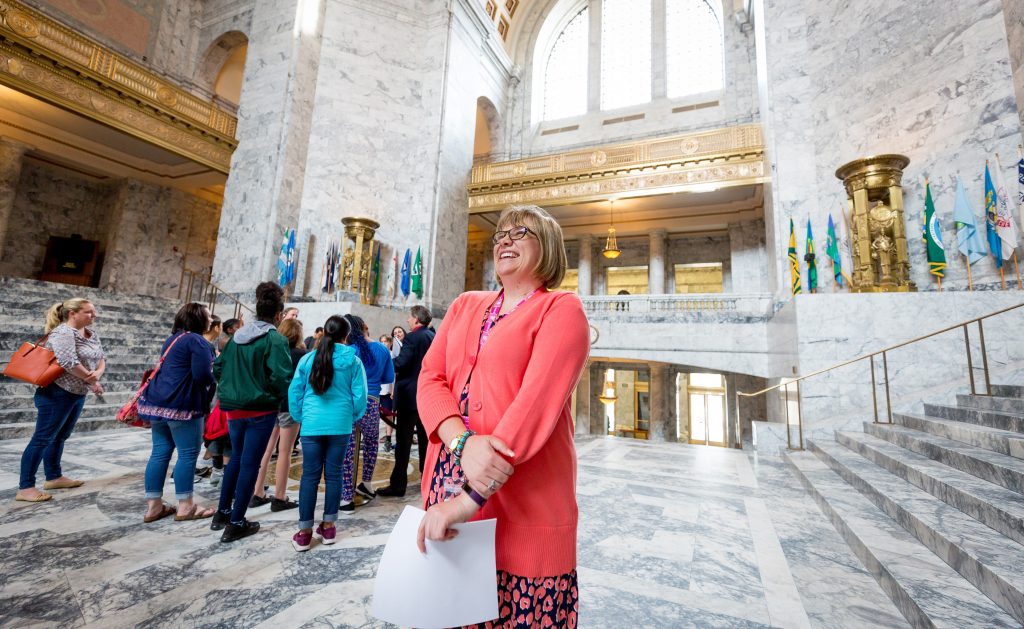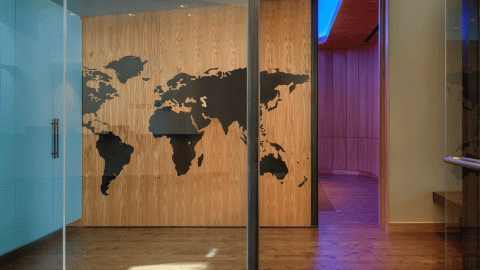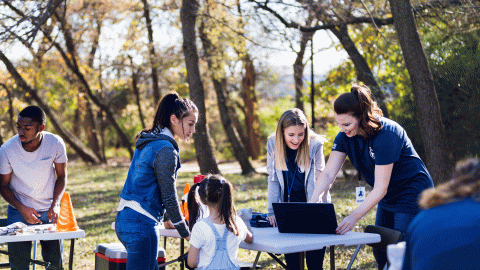‘These are employees you want’: Special Olympics job fair is a win for athletes, region
Five years ago, Krista Gobeille’s office made its first hire through Washington state’s supported employment program, which helps people with disabilities land and succeed in jobs.
The Washington state governor’s office, where Gobeille works as director of constituent services, needed someone to process the mail sent to Gov. Jay Inslee: invitations, opinions on his policies, bills, questions, complaints, occasionally the odd note carved in a potato. It’s an important job not only because letters need to reach the right people, but also because public records laws require correspondence to be properly documented and stored electronically.
Gobeille now supervises Heather Harper in that role. Harper, a Special Olympics athlete who competes in swimming and sporting events and has a learning disability, needed an employer to appreciate all the skills she did have, rather than screening her for ones she didn’t. With the help of a job coach, she quickly learned all the steps involved in sorting, scanning and distributing mail in a busy government office. And Harper has become one of the best employees Gobeille has managed.
“To have a staff member like Heather who loves her job, performs well and enthusiastically supports her team is a tremendous asset and would benefit any employer,” says Gobeille. “Inclusion is a priority for our office, and we have found supported employment to be a great way to expand opportunities for individuals with disabilities while finding capable, hard-working employees who add value to our organization. These are employees you want to have.”
Harper, now 34, had been an eager worker since high school when she got first her job picking farm vegetables. But when the receptionist job she held at The Arc of Washington State prior to the governor’s office was eliminated because of budget cuts, Harper spent two years unemployed — something that people with disabilities across the country are twice as likely to experience.
I was so excited and happy when I got the job in the governor’s office. It was my dream. – Heather Harper, Special Olympics athlete
The U.S. Bureau of Labor Statistics reports that 30 percent of working-age people with disabilities were employed last month, compared to 74 percent of people without disabilities. Those inequities are what drove organizers for the 2018 Special Olympics USA Games to team up with SourceAmerica, a national leader in creating employment opportunities for people with disabilities, to offer its first job fair and employer trainings as part of the USA Games that Seattle will host in July.
“The Special Olympics USA Games can be a galvanizing force for a greater awareness and appreciation across Puget Sound of what people with intellectual disabilities can contribute. I’m excited to show the rest of the country that Seattle is a city of inclusion where we appreciate the broadminded and civically oriented spirit of this community,” said Microsoft President Brad Smith, honorary chairman of this year’s games.
The competition’s 3,000 athletes can benefit from career coaching at the job fair and present their skills to a growing list of employers who recognize the value they can bring to a team. These companies include Amazon, Bank of America, Brooks Running Company, the city of Seattle, Compass, Kaiser Permanente, King County, Microsoft, MV Transportation, Novitex, Starbucks, Swire Coca-Cola, the University of Washington and Walmart.
The Journey of Employment job fair, to be held at the UW’s Husky Union Building on July 5 and 6, will also offer training for other employers — of all sizes and across industries — on creating or expanding inclusive hiring practices.
“Our state believes in inclusion and openness and tolerance above all else. Increasing job prospects for people with disabilities in state government has been a big priority for me because we want that talent,” said Inslee at a recent Microsoft forum on expanding inclusive hiring programs. “The more people that we can get into employment, the better off we are going to be economically. The more people we have rowing in the boat, the faster that boat is going to be.”
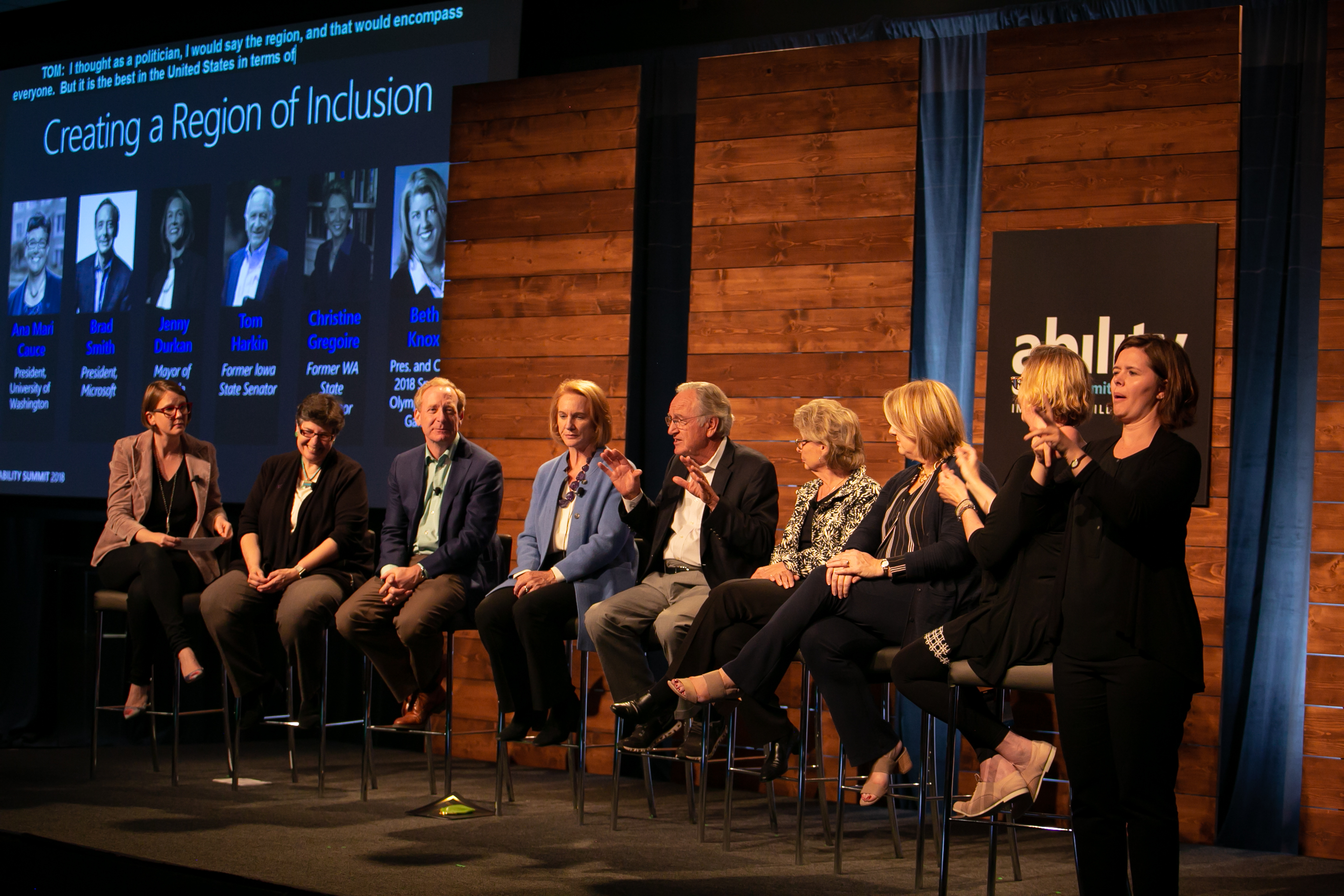
Microsoft’s commitment to an inclusive workforce — which includes supported employment programs and robust accessibility requirements, as well as disAbility Employee Resource Groups and its role as premier partner of the 2018 Special Olympics USA Games — is driven by the company’s mission and core values. But there’s also a clear business case, says Neil Barnett, Microsoft’s Director of Inclusive Hiring and Accessibility.
Because workers are a bridge to customers, Microsoft’s employees with disabilities help meet the needs of an increasingly global and diverse customer base, which includes more than 1 billion people with disabilities worldwide. Their perspectives have driven improvements in Microsoft’s accessibility tools, including screen readers and dictation tools and eye-tracking controls. And they drive innovative research projects like Seeing AI, an app designed for people with blindness or low vision that can narrate the physical world around them and describe the emotions on people’s faces.
The company’s Autism Hiring Program, which altered its recruiting, interviewing and retention strategies to avoid inadvertently weeding out talented job candidates who happen to be on the autism spectrum, has expanded the pool of candidates for technical roles such as software engineers and data scientists where competition for talent is fierce. More than 50 percent of the employees hired through the program had previously applied for Microsoft jobs before the inclusive changes were made. But they didn’t make it to or through the first screening rounds, Barnett says.
“There is tremendous untapped talent out there — I can tell you stories about people with multiple advanced degrees who are underemployed because of unconscious bias or because they haven’t had the opportunity to showcase their skills in front of an employer,” Barnett says. “Employers need to think about how to advertise and interview more inclusively and screen those people in instead of out.”
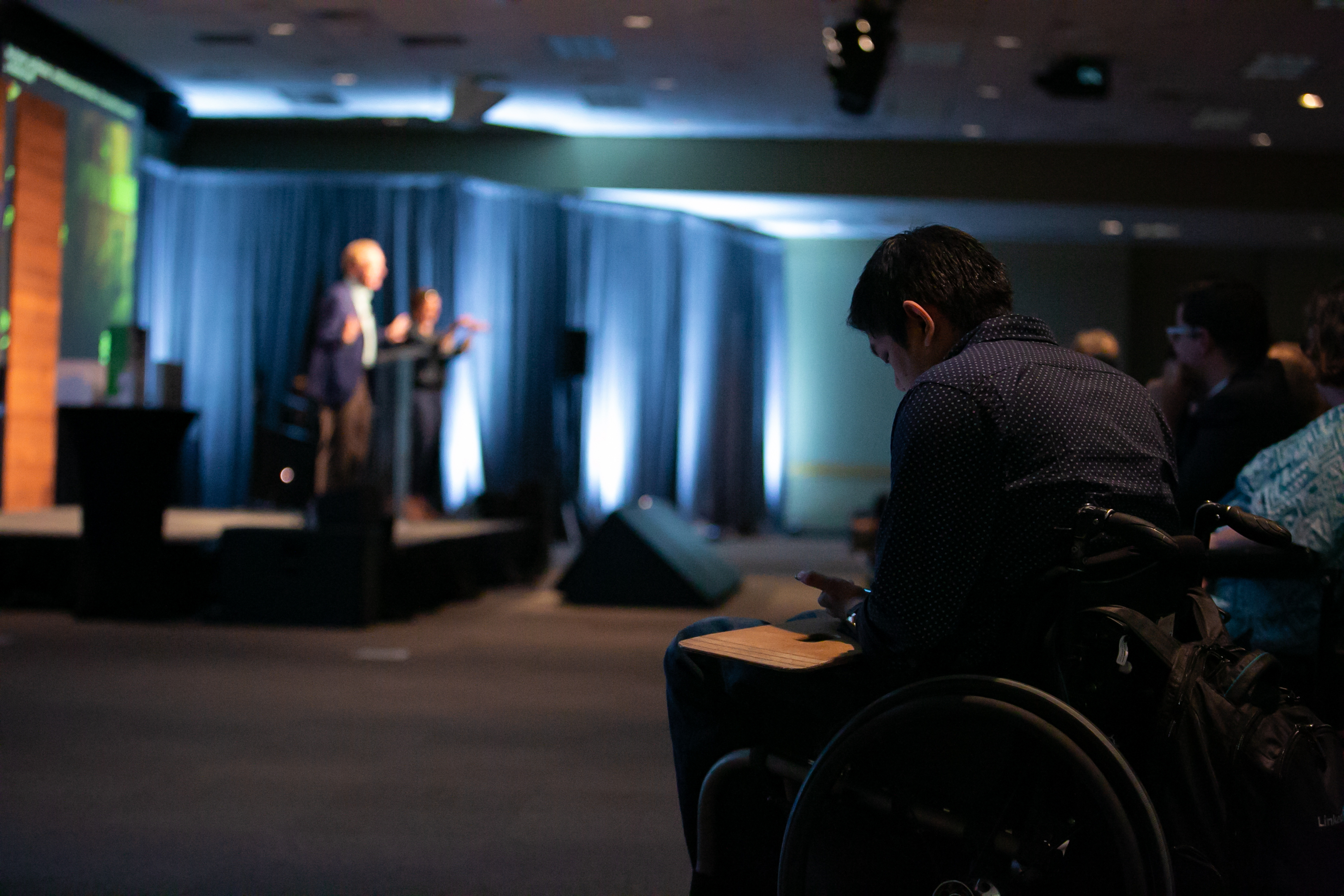
Chetan Bakhru, a senior accessibility specialist for JPMorgan Chase who has been blind since birth, joined the company three years ago. He wanted to work for an employer that builds accessibility awareness and features into its products and services on the front end, rather than tacking them on at the end.
Bakhru has been embedded in teams working on the financial service company’s websites and mobile app, collaborating with designers and developers. He ensures, for instance, that websites have sufficient contrast and that the labels read by screen readers accurately explain what features like check boxes or forms are meant to do.
“When our developers have that interaction with a person with a disability, it can be very eye opening for them to see that maybe they were not meeting the bar they thought they were,” says Chinyere Samuelson, a JPMorgan Chase accessibility lead. “But once they have that experience, it opens a door. Most developers are all about the challenge, and this allows them to start owning the responsibility for making something that is accessible to everyone.”
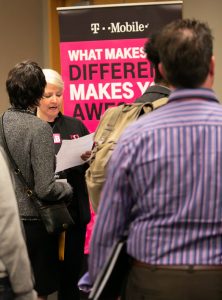
Bakhru says national events like the Special Olympics USA Games have the power to showcase all the things that people with disabilities can achieve. But their life skills extend far beyond the basketball court or gymnastics mat.
“People with disabilities can represent some of your best talent pool because they have skills that they’ve had to develop throughout their lives, like problem solving and leadership and time management,” says Bakhru. “There is a very high percentage of people with disabilities who are capable of working but are unemployed simply because of misperceptions or biases.”
Participants in the Special Olympics USA Games job fair are already working to improve employment outcomes for people with disabilities. Corporate partners across Puget Sound and nationally have already stepped up to the plate with robust inclusive hiring and supported employment programs, says Beth Knox, President and CEO of the 2018 Games.
“Being a part of the employment solution is a significant priority for all of us,” says Knox. “It’s part of the bigger cultural shift we’re focused on to ensure that people with intellectual disabilities are seen and valued as contributing members of our community. Employment plays a major role in that.”
Harper, in the governor’s office, loves working — citing the money she earns and the independence it affords to the people she gets to interact with every day. She recently asked to increase her hours from 15 to 19 hours a week, which the governor’s office was happy to accommodate.
“I love my job. I just love it. Meeting new people and interacting in different activities is really fun,” Harper says. “I was so excited and happy when I got the job in the governor’s office. It was my dream.”

Nicole Turner is Harper’s job coach at Morningside Services, which provides employment services to people with disabilities and works with employers to analyze their needs. The agency can often find needs that either aren’t being met or tasks that take other employees away from their core duties, which can be very capably handled by one of their clients.
She works with a local credit union that has hired her clients as branch caretakers, managing the coffee station in the lobby, cleaning the breakroom, shredding documents, sanitizing door handles and lights switches and the ATM. Another client works in a department store making sure that clothes from the dressing room make it back to the right section and are properly sized.
“You always want to be meeting a real need that employers have, because you know that is a job that will stick,” says Turner. “It’s a pretty powerful argument when we can say we have a job seeker who has these skill sets and can do this job successfully and save your company money and diversify your workforce all at the same time. Everybody wins.”
* * *
For more on the 2018 Special Olympics USA Games, read this profile of Microsoft’s elite runner Andy Bryant; get details on the Special Olympics Journey of Employment job fair; or learn how you can get involved, including purchasing tickets and volunteering.
Lead image caption: Harper says her job processing mail for Washington Gov. Jay Inslee, which she landed five years ago through the state’s supported employment program, was a dream come true. (Photo by Scott Eklund/Red Box Pictures)

